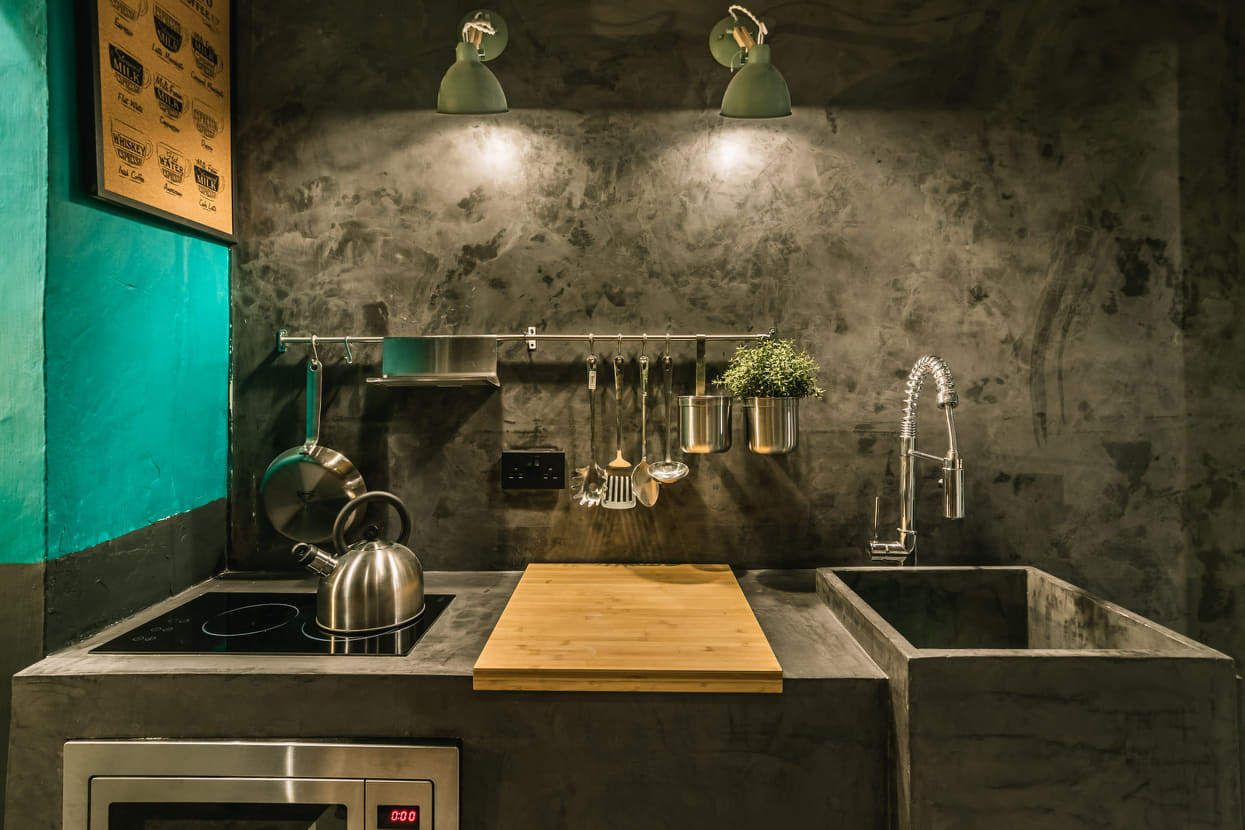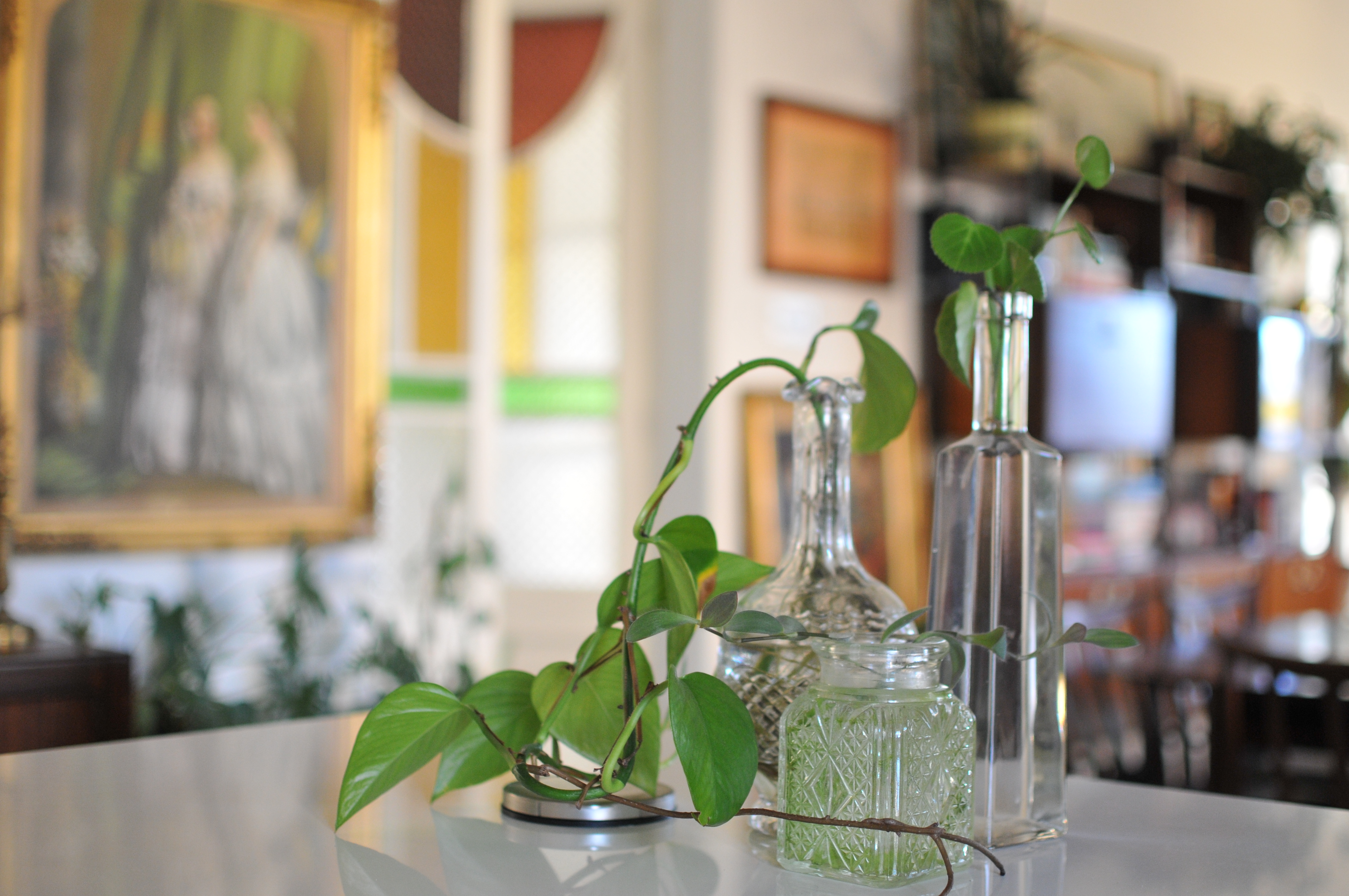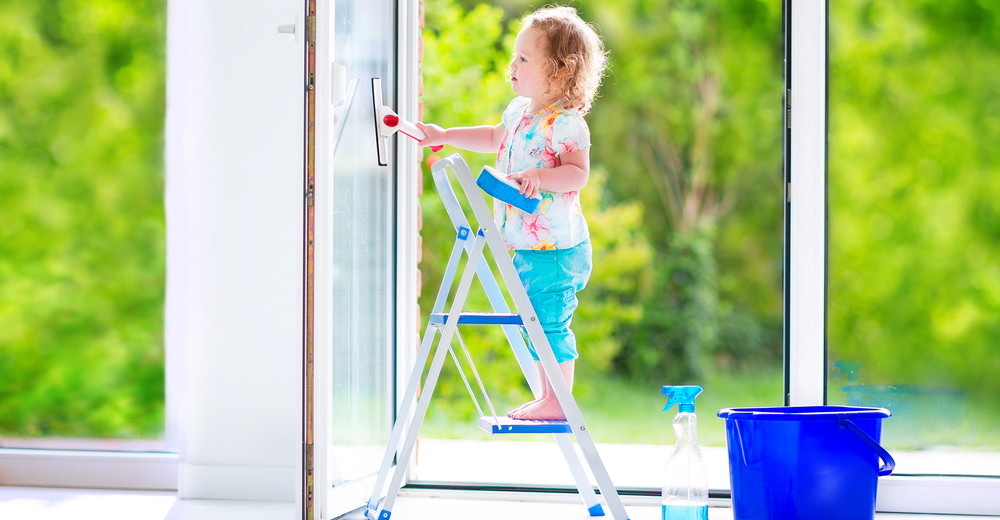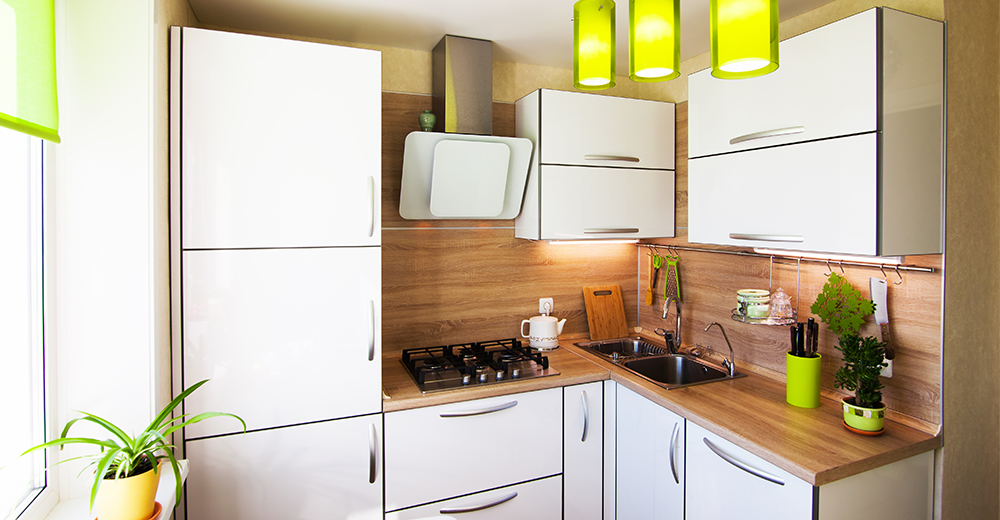A clean kitchen doesn’t necessarily mean it is a healthy one. In fact, cleaning your kitchen (or any other part of your house) with detergents may be doing more damage than good to your health. A slew of studies conducted abroad show that, over the span of a decade, there has been a 42% increase in asthma, 82% of whom are women and toddlers who are exposed to household chemicals. You heard that right: Air pollution isn’t just outdoors.
And while the heavy levels of traffic Malta endures is an obvious cause of health issues, do not underestimate the influence of harmful toxins in your house. Indoor air can be anywhere from two to five times as polluted as outdoor air.
Cut harmful toxins out of your cleaning routine and reduce your family’s exposure to potential health risks by opting for these cost-effective alternatives.
The supplies you will need
- Baking soda (alkaline, cleaner, deodorizer, mild abrasive)
- Distilled white vinegar (acidic, disinfectant, stain remover, cuts grease)
- Lemons and a juicer (acidic, deodorizer, brightener, cuts grease)
- Liquid Castile soap (a 100% plant-based soap, biodegradable, adds suds, cuts grease)
- Organic essential oils
- Olive oil
- Spray bottle
- Clean cloths
- Scrubbing sponge
- Cleaning gloves (skin may be sensitive to baking soda, lemons and vinegar)
Getting the right cleaning cloth
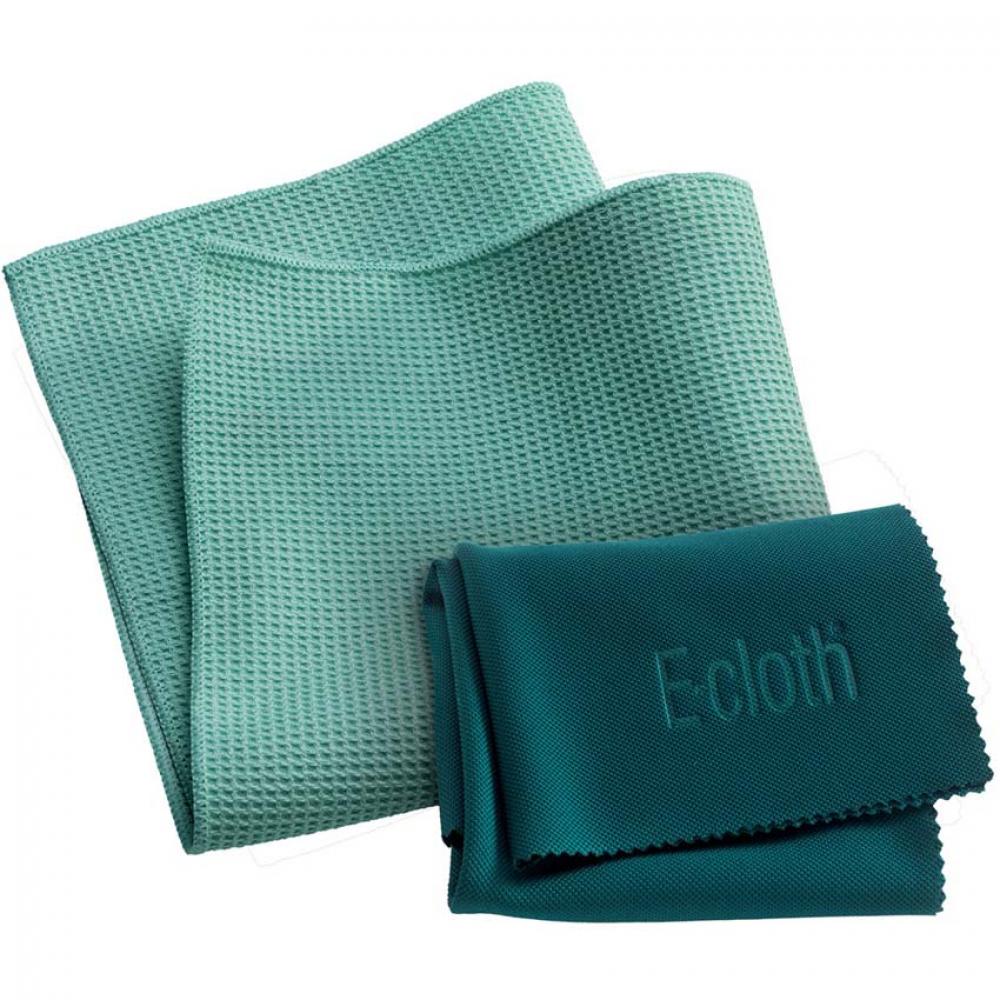
Clean better, faster, and with less effort. E-cloths are made from specially treated polyester and nylon, so they don’t ‘absorb’ anything. As you draw the cloth across a surface, water, dirt, oil, grease, grime and even bacteria are trapped within the fibres – and are easily released just with a rinse.
The best part – when you run the cloth under the tap, all but 0.01% of the bacteria go down the sink, so there is virtually no transfer back onto clean surfaces. Buy them here: https://e-cloth.com. They ship internationally (and no, we’re in no way affiliated with this company).
Cleaning the coffee maker, refrigerator, microwave
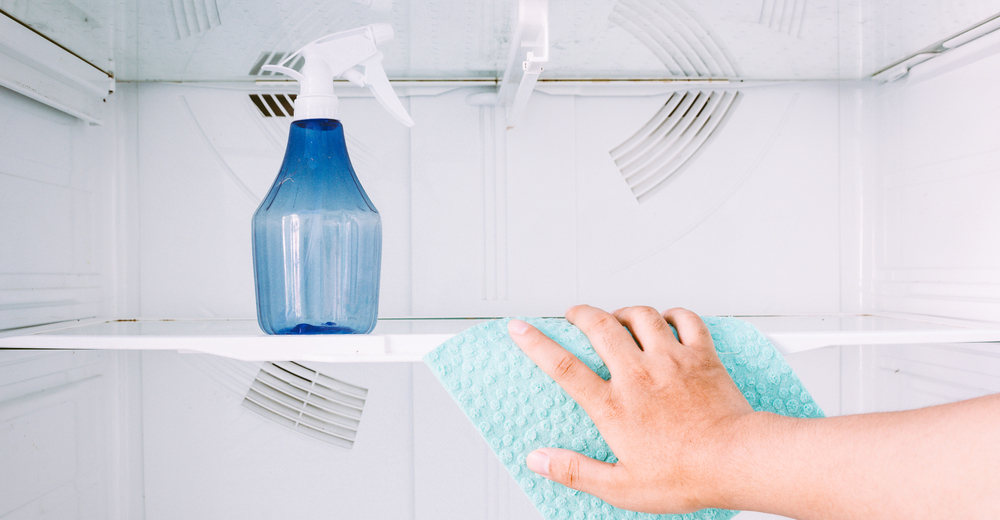
- Castile soap (fine, hard white or mottled soap made with olive oil and soda.)
- Water
- Vinegar (or lemon juice)
- + Essential oil (for the fridge)
Pour equal amounts of vinegar and water into a clean pot brew, and then let sit for up to an hour. Brew a second pot with just plain water for rinsing. You can use this for all three appliances, but if your microwave has grime, pour water with the juice of one whole lemon in a bowl and let boil inside the microwave, the steam will loosen up stuck-on gunk and the lemon will remove odors.
For your refrigerator, mix in 15 oz. water, 1oz. vinegar, and around 30 drops of your favourite essential oil to wipe down all surfaces, include the rubber door seals.
Cleaning the dishwasher, countertops, sink, oven
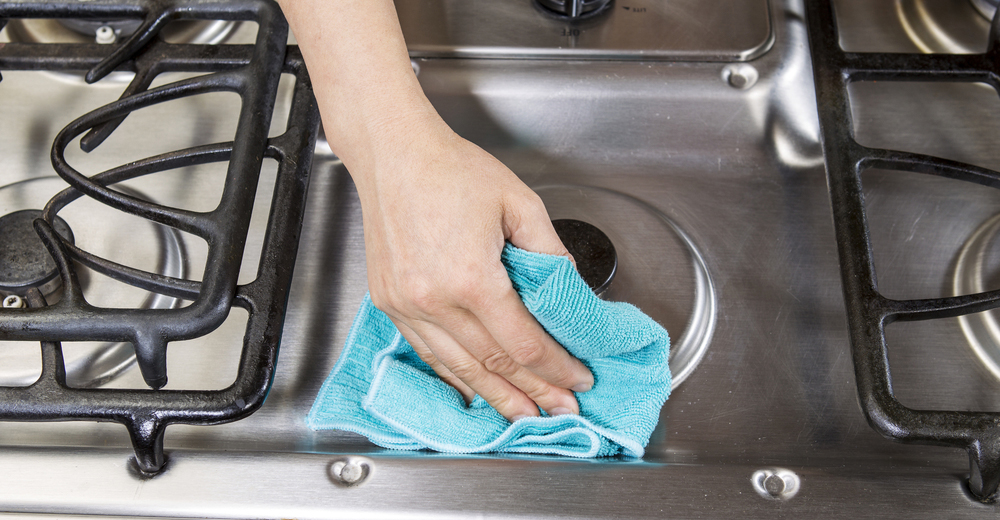
- Vinegar
- Baking soda
Pour a cup of vinegar and ¼ cup baking soda into the bottom of the dishwasher (don’t add detergent); the vinegar will help clean and disinfect and the baking soda will help deodorize. To clean around the door seals and other parts of the dishwasher, simply pour vinegar on a dry cloth. Sprinkle baking soda in the machine to prevent odours from building up.
For the countertop, try a scrubbing paste mixture: ¾ cup baking soda, ¼ cup Castile soap, 1 tablespoon water. If your countertops are cultured, porous stone like marble or quartz, do not use an acidic cleaner like vinegar or lemon juice.
For the sink, mix 3/4 cup baking soda, 1 tablespoon water, and 1/4 castile soap. Add drops of essential oil for a strong cleanse.
Nothing requires a good scrubbing like an oven that’s used daily. Traditional oven cleaners are caustic, smell bad and ladened with chemicals. Make a simple abrasive paste with 1 tablespoon Castile soap, 1 ½ cup baking soda, ¼ cup vinegar. Apply with a sponge, let sit for 25 minutes, and wipe away.
Cleaning Stainless steel
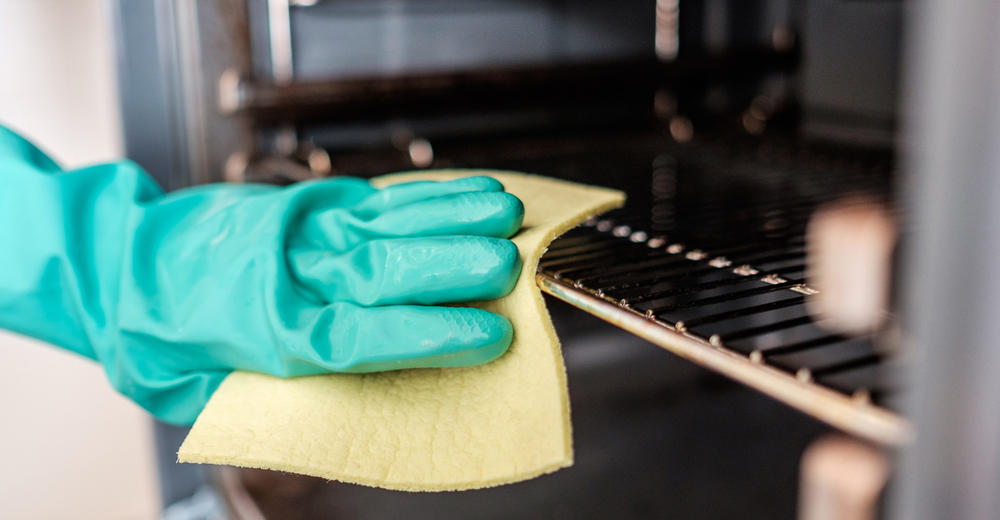
- Vinegar oil
- Olive oil
Remove fingerprinters, grease, or stuck on foods by rubbing vinegar onto the surface with a cloth. Let the surface dry, and then pour olive oil on a dry cloth and wipe in the direction of the grain.
All-purpose spray cleaner
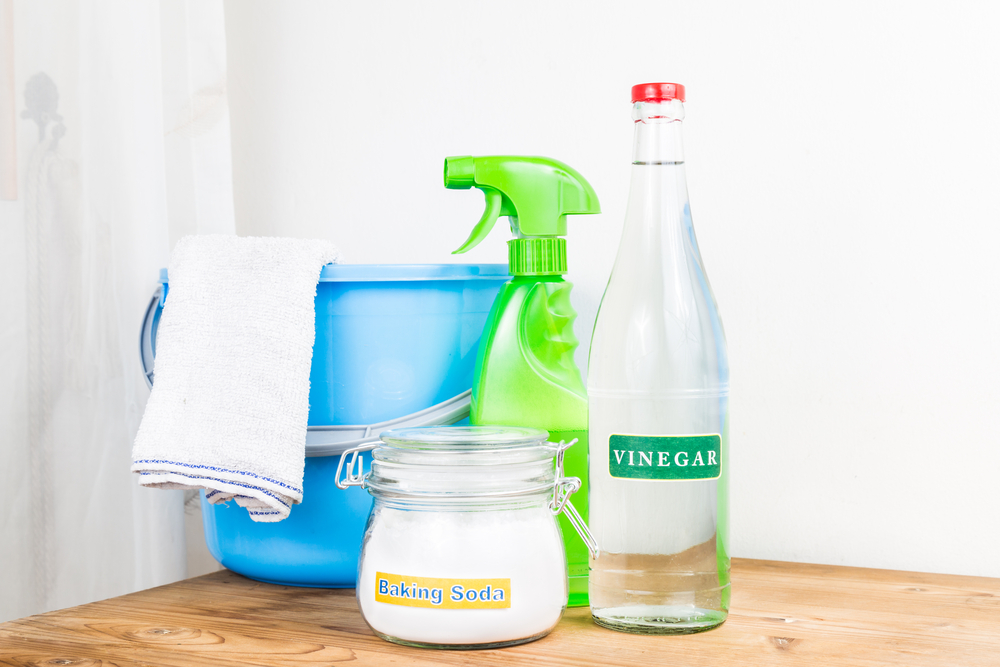
- Water
- Vinegar
- Essential oils
Fill a spray bottle with 15 oz. water, 1 oz. vinegar, 20-40 drops of your favorite essential oils like lemon, sweet orange, peppermint or Tea Tree. Shake and spray. This can be used on the refrigerator, cabinets, garbage cans, and countertops.
Do not use on porous materials like unfinished wood, marble, or stone.
Essential oils and why you should use them
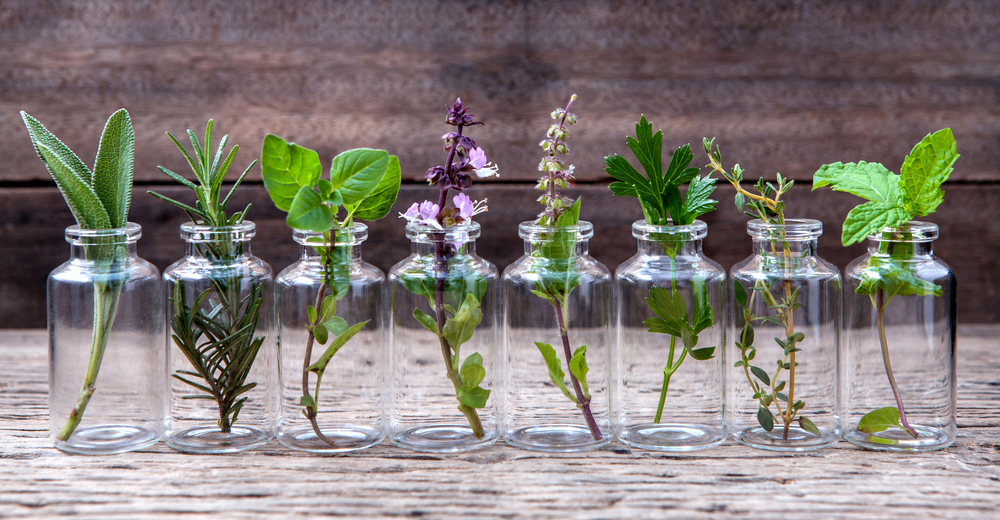
Although their lovely scent is reason alone to use essential oils, the best reason to use them in your non-toxic cleaning recipes is that they actually have cleaning powers.
Tea Tree, for example, was used in WWII to treat wounds on soldiers, and has proven itself to be a powerful cleaning agent – it is antibacterial, antifungal, antimicrobial, antiseptic, antiviral, deodorant, fungicidal, and insecticide.
Other good options are rosemary, peppermint, sweet orange, lemon, and lavender.
Before concluding, something worth keeping in mind:
Warning labels on containers refer only to toxic hazards from ingestion; however, only 10% of health problems from chemicals are caused by ingestion. 90% are caused by the inhalation of vapors and absorption of particles.
Do you always reach for a bottle of store-bought solution to clean your kitchen? Keep in mind that are a multitude of plant-based or non-toxic ingredients that are fantastic for cleaning, cheaper than store-bought products, and much healthier to your family.

